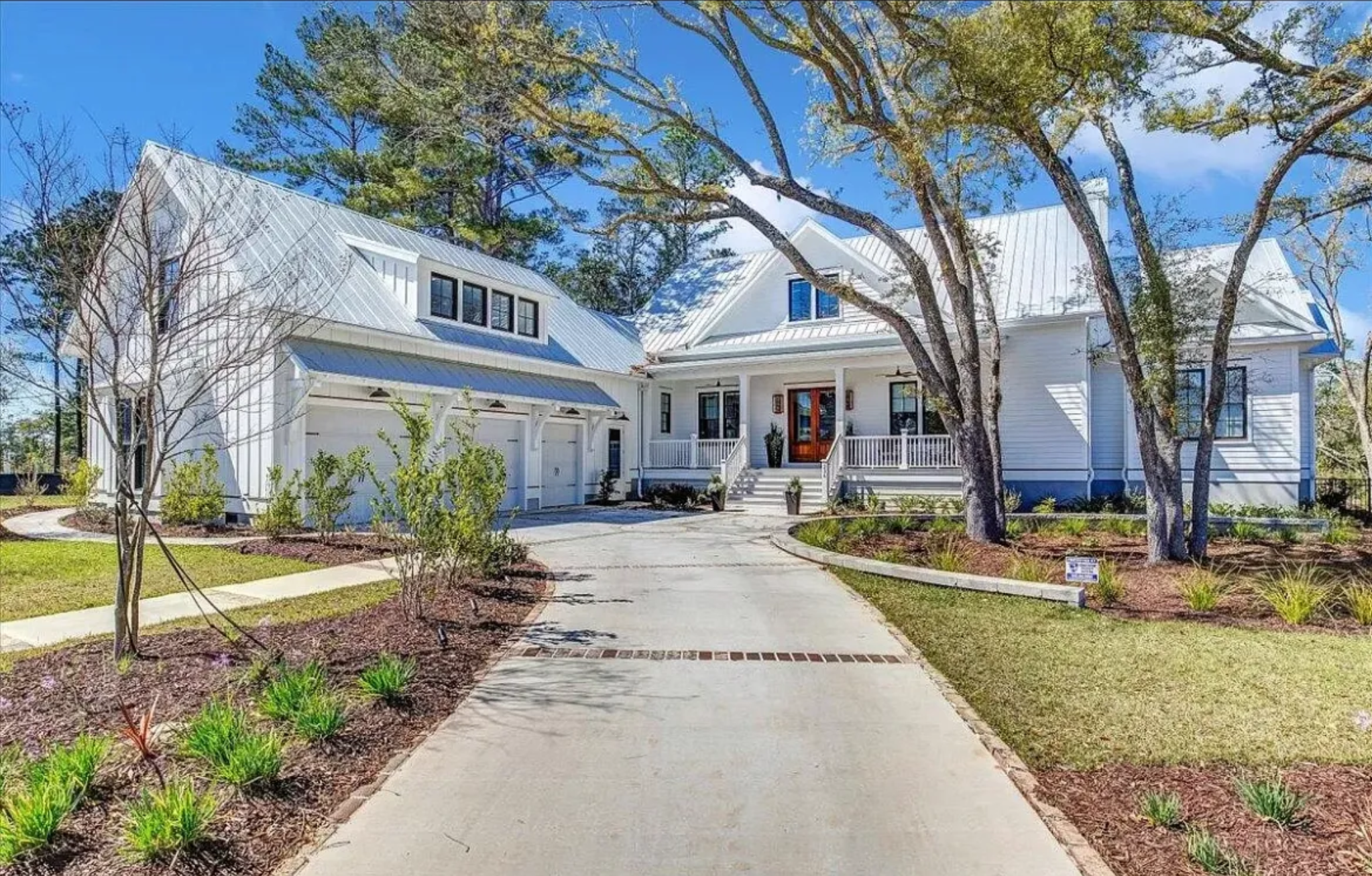
13 Feb Custom Build vs Renovation
Building a Custom Home vs. Renovating: Which is Right for You?
When considering a significant home investment, homeowners often face a crucial decision: should they build a custom home or renovate an existing one? Both options have advantages and drawbacks, from costs and timelines to available land and design flexibility. In this comprehensive guide, we’ll explore the pros and cons of each to help you make an informed choice.
Building a Custom Home
Building a custom home means starting from scratch—purchasing land, designing a home tailored to your needs, and constructing it to your specifications. While this offers complete control during construction, it also comes with things you should consider prior to making your decision.
Pros of Building a Custom Home
- Complete Design Control – You have the freedom to design every aspect of the home, from layout to materials, functionality and finishes. This is truly the best part!
- Energy Efficiency – New homes can incorporate the latest energy-efficient technologies and sustainable materials, reducing long-term utility costs. For example, the latest insulation and foaming practices, the latest and greatest HVAC technologies, wireless and smart home capabilities,
- Lower Maintenance Costs – Since everything is new, major repairs and maintenance won’t be necessary for many years. I always tell clients, you can always tell when walking into Lowe’s or Homes Depot who owns a newer home. Folks with new homes head to the gardening, cleaning supplies or appliance sections for example. Alternatively, people who older homes walk toward the plumbing, electrical and lumber sections.
- Modern Building Standards – Custom homes adhere to current building codes, ensuring structural integrity and safety.
- Personalized Features – Customization allows you to include smart home technology, custom cabinetry, unique architectural elements, and design features.
Cons of Building a Custom Home
- Higher Initial Costs – The cost of land, construction, and permits can be significantly higher than renovating an existing home. With longer “wish lists,” custom construction can add to higher front-end cost. Typically offset by equity, the features added to the home during construction, although necessary may provide some additional required funds.
- Lengthy Construction Timeline – A new build can take anywhere from 12 to 24 months, depending on complexity, permitting/inspection processes, weather, material and labor availability, and unforeseen obstacles.
- Limited Land Availability – In many desirable areas, finding suitable land can be challenging and expensive. One thing that can never change….location 🙂
- Unexpected Delays and Costs – Again, weather, labor shortages, and material price fluctuations can impact the timeline and budget. All of which can be overcome by setting the correct timelines during pre-construction meetings and understanding the materials and processes required for the construction process upfront.
Cost Considerations for Building a Custom Home
- Land Purchase: Prices vary greatly by location. Obviously the Charleston area is highly desirable. So obtaining land can be tricky. Luckily Custom Homes of Charleston engages with realtors all across Charleston to find properties that meet the needs of our clients.
- Construction Costs: Costs can range drastically and for numerous reasons. One reason that comes to mind is due to the size of the house. While a house that is, say 3,000 square foot house could be $500/ft, the exact same house but 2,000 square feet larger (5,000 square feet) would be $300/ft. Obviously, this is a large swing in price but the point is to illustrate the price per square foot can be deceiving and shouldn’t be the sole reason why someone should or shouldn’t build a custom home. . Over the last 10 years, we’ve built houses ranging from $275/ft to $650/ft. Those aren’t hard numbers and have a ton a factors included in those numbers like pools, docks, outdoor living areas, high end marble, tile, trim etc.
- Architect and Design Fees: These vary drastically and putting a number here would be tough. Simply too many variables. .
- Permits and Inspections: Can add $5,000-$10,000 to overall costs.
- Utility Hookups: Additional expenses if the land is undeveloped. Putting a hard number here would be very tough due to variables with the utility supplier and location.
Renovating an Existing Home
Renovating an existing home involves updating or modifying a property to better suit your needs while retaining some or all of its original structure.
Pros of Renovating an Existing Home
- Potential Cost Savings – Renovations are often more affordable than building a new home, depending on the scope of work.
- Faster Completion – Smaller renovation projects can be completed in a few months, unlike the year or more required for new construction.
- Established Neighborhoods – Many existing homes are in desirable locations with developed infrastructure, schools, and amenities.
- Preserving Character and Charm – Older homes often have unique architectural features that can be retained and enhanced. Sometimes the goal is to keep or increase the charm or remove the charm 🙂 and start over.
Cons of Renovating an Existing Home
- Unforeseen Costs – Hidden issues like outdated wiring, plumbing problems, or structural damage from water intrusion or insect can increase costs. Also, renovated structures must be built to the current code standards. Therefore upgrading framing and mechanicals will always require additional engineering and input from subcontractors and inspectors..
- Limited Design Flexibility – Working within an existing structure can limit layout changes and modernization efforts.
- Temporary Disruption – Living in a home during renovations can be inconvenient and stressful. It can also be very unhealthy. Construction materials become airborne during demolition and items like sheetrock and siding have well documented health hazards for both adults and children. Pets also don’t typically love the new commotion.
- Potential Permit and Zoning Restrictions – Local building codes may limit certain modifications, adding complexity to the project.
Cost Considerations for Renovating
- Minor Renovations: $30,000 to $100,000 (kitchens, bathrooms, cosmetic updates).
- Major Renovations: $100,000 to $500,000 (structural changes, home additions, complete remodels).
- Unexpected Repairs: Budget an extra 10-20% for surprises and changes to the original plans.
- Permit Fees: Vary by location and scope of work.
- Labor and Material Costs: Prices fluctuate depending on numerous factors. For example quality labor, higher end materials and supply chain.
Timelines: Building vs. Renovating
| Factor | Building a Custom Home | Renovating an Existing Home |
|---|---|---|
| Planning & Permits | 3-6 months | 1-3 months |
| Construction | 9-24 months | 3-12 months |
| Unexpected Delays | Common due to weather, labor, and material shortages | Possible, especially with structural issues |
| Total Timeframe | 12-30 months | 4-15 months |
Land Availability and Location Considerations
- Building a Custom Home:
- Finding land in urban or high-demand areas can be difficult.
- Suburban or rural locations offer more land options but may require extended commutes.
- Infrastructure such as water, sewage, and utilities may need to be installed.
- Renovating an Existing Home:
- Ideal for homeowners who want to stay in a well-established neighborhood.
- Infrastructure is already in place, minimizing additional costs.
- May be limited in expanding square footage due to zoning laws.
Making the Right Choice
When deciding between building a custom home and renovating an existing one, consider the following questions:
- What is your budget? If cost is a significant factor, a renovation may be the better choice.
- How much time do you have? If you need to move in quickly, renovating is generally faster.
- Do you have access to land? In areas with limited land, renovation may be more practical.
- How much customization do you need? If you have a very specific vision, building a custom home allows for complete control.
- Are you prepared for surprises? Renovations often reveal hidden issues, which could equate to additional costs.
Conclusion
Both building a custom home and renovating have their advantages and drawbacks. If you prioritize full design control, energy efficiency, and a brand-new structure, building a custom home may be worth the investment. However, if cost savings, location, and quicker timelines are your top priorities, renovating an existing home could be the ideal solution.
Ultimately, the right choice depends on your financial situation, lifestyle preferences, and long-term goals. Consulting with architects, builders, and real estate professionals can help you make the best decision for your needs.
Looking to start your home project? Contact us today to discuss your options and find the best path forward for your dream home!



